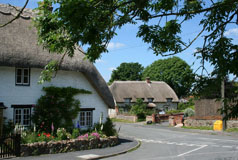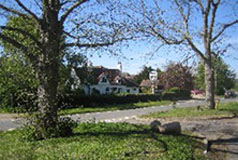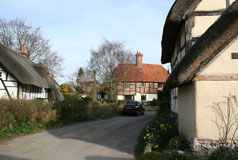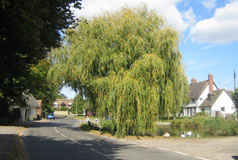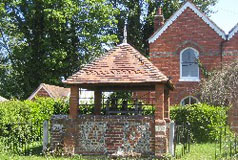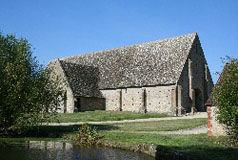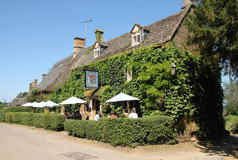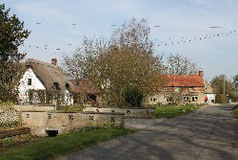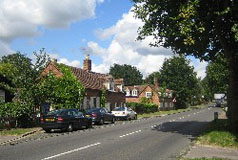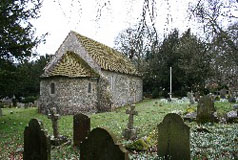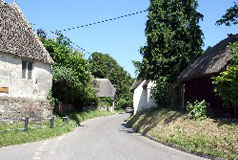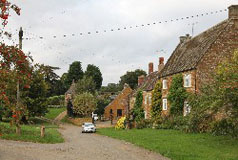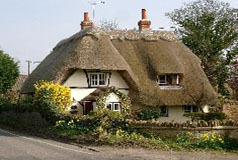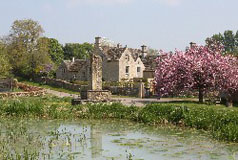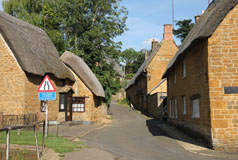CHOLSEY
At first
glance Cholsey might appear to resemble a suburb rather
than an attractive village. However there are still some
attractive corners of the village and several fine buildings;
attractive flint and brick houses, thatched cottages and
barns
The prehistoric road, the Icknield Way, crosses the river
Thames at Cholsey and is probably the reason for the original
settlement at this place. Certainly the availability of
fertile land, pasture and timber would have been attractive
to settlers.
The church of St Mary on the northern edge of the town
was founded in AD 986, although the present building was
built in the early half of the 12th century. Features
of the church are the dog-toothed Norman doorway and the
sanctus bell which was cast in London between 1290 and
1310. The well-known novelist, Agatha Christie, is buried
in the churchyard. For the history and full information about St. Mary's Church click here.
In the centre of the village is the village green known
as ‘The Forty’, thought to mean ‘island in the marshland’.
The Forty is dominated by magnificent horse-chestnut trees
and is perhaps the most attractive part of the village.
The old Fairmile Hospital in the village has been used as a location in the popular TV series Midsomer Murders.
http://midsomermurders.org/cholseyloc.htm
The Cholsey Viaduct was built by Isambard Kingdom Brunel
in the 19th century and is a distinctive feature in the
landscape.
Passenger services on the former Great Western Railway
branchline that links Cholsey with Wallingford ceased
in 1959. The line, known locally as "The Bunk", has been
preserved as the Cholsey
and Wallingford Railway and is run by the CWR Preservation
Society which took the line over in 1981. The railway
runs steam trains where possible, and has a fleet of 08
class diesel locomotives.
Cholsey
is about a mile and a half from the River Thames a few
miles south of Wallingford just off the A329.
